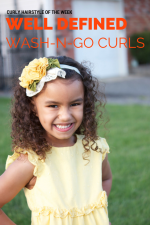There are many shades of black, but not all are treated equally. As a dark skinned little girl, I notice that people treated me differently than my light skinned sister. Now a dark skinned woman, the same standard still exists. Lighter complexion is often the color of choice in my line of work. But, what does this mean for my biracial kids?
I’ve grown to expect this form of discrimination in my profession. However, it makes me sad when that hatred comes from my own race, and the discrimination isn’t just one sided these days. There are times when being ‘too light’ isn’t enough. Unfortunately, biracial and mixed race people often experience this type of prejudice.
Most recently, there was a ton of backlash when Ebony Magazine released its 70 anniversary issue “Power 100 to the People” featuring Harry Belafonte, Jesse Williams and Zendaya Coleman on the cover.

An anonymous writer of Clutch Magazine article criticizes the magazine for having mixed-race celebrities on the cover of this particular issue and insinuates that they aren’t “black enough.”
“To then place (Zendaya) on the cover of a magazine edition that celebrates Black people who #StandForSomething, mainly because she responded to racist criticisms of her hair is simply daft.”
The writer is referring to Zendaya’s response to TV host Giuliana Rancic’s racist remarks against her faux dreadlocks. According to the writer, standing up to Rancic doesn’t qualify Zendaya a spot on the cover.
I’ll admit that at one point in my life I probably would have agreed with the writer’s statements because of my own experiences. However, since becoming a mom to biracial children, my perspective has changed.
A person of mixed race shouldn’t be scrutinized for wanting to stand up against social injustice. Just because a person has a lighter complexion doesn’t rule out his or her experiences—experiences that can be similar to what many black people face—and doesn’t mean he or she shouldn’t have a voice to address injustices.
The reality is that there are some people who will continue to think biracial people aren’t black enough, and that’s just not fair. They too can understand how important it is to support their ancestors who were a part of slavery, Jim Crow, civil rights and black power movements.
Our biracial kids may face the same kind of discrimination, and all we can do is reinforce their racial identity. We teaches them to embrace both sides, and they shouldn’t allow society to dictate how they should classify themselves. Regardless of what anyone says, they are more than enough.

Please head over to my mom.me blog for more on this topic.












Actually, while you do have some American Black people who insist biracial people are not Black enough, it is more often the other race that will not see them as being white enough or Asian enough or Hispanic enough, in my opinion. African/Black Americans are known for insisting anyone with a smidgen of African ancestry is Black and as Black as someone with two parents.
The Zendaya controversy we see is people wanting to claim and not claim her to their advantage. She is Black (regardless of how she identifies) when it is beneficial to Black people but not Black (regardless of how she identifies) when it is not beneficial to Black people. Ultimately, this is why Biracial people should not be looking for outward confirmation about their identities. They are Black Enough/White Enough/Asian Enough/Hispanic Enough is that is what they feel they are. No one in this country has the power or ability to control how your kids identify. They are what they say they are. You have to simply ignore the naysayers. They are more than enough in my opinion.
Thanks so much!